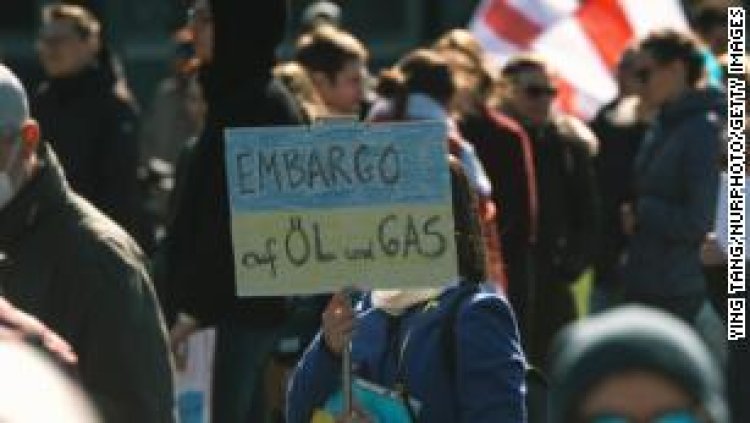Rationing of gas, food coupons, and hunger: the economic consequences of Russia's conflict are becoming palpable.
Food vouchers are being considered by the French government as a way to help residents afford to eat. According to a commodities trading firm, fuel is in such low supply that it may have to be rationed shortly.

As Russian troops advance on Ukraine, Ukrainians are running out of food and medication in growing numbers. The invasion's economic consequences are beginning to affect the rest of the world as well.
Global growth forecasts are being reduced, and the likelihood of a US recession in 2023 has risen to 35%, according to Goldman Sachs.
War in Europe, on the other hand, is no longer a theoretical, far-off danger for economists to address in research papers and investor notes. It's observable. It's finally here. And it's creating a lot of anguish for a lot of people.
As oil and other commodity prices have risen, consumer costs have risen as a result of sanctions and other supply-chain disruptions. Increasing food costs are being exacerbated by rising petrol and diesel prices, raising fears that the globe is on the verge of a starvation crisis.
Food vouchers are being considered by the French government as a way to help residents afford to eat. According to a commodities trading firm, fuel is in such low supply that it may have to be rationed shortly.
Desperation in Ukraine
Food prices have risen as a result of Russia's invasion of Ukraine. Fertilizer supply is shrinking as gas prices rise. Wheat, corn, vegetable oils, and soybean prices have skyrocketed as a result, posing a serious threat to countries already facing food insecurity.
However, developed economies are beginning to feel the pinch as well.
French President Emmanuel Macron said his administration is contemplating food vouchers to help middle and low-income families afford to eat, calling the problem a "global food crisis."
"I want to put in place a food voucher [system] to support the most humble homes and the middle class suffering these additional expenditures," Macron said in an interview with France Bleu radio on Tuesday.
The tremors have even hit the world's most powerful economy. Food prices in the United States increased by 1% in February, the highest monthly increase since April 2020. Overall, food costs in the United States have risen 7.9% in the last year, the highest increase since July 1981.
Egypt set the price of bread this week to keep costs from skyrocketing due to supply chain interruptions. Unsubsidized bread prices have risen by as much as 25% in some bakeries in the three weeks since Russia invaded Ukraine.
Energy costs have risen around the world as a result of the global boycott of Russian crude. The United States, Canada, the United Kingdom, and Australia have all banned the country's oil, and European oil majors (Shell, Neste, and Total) are phasing it out as well.
The removal of Russian oil from the Western market this week, according to the CEO of Dutch commodity trading business Vitol, will force drivers and trucks to ration diesel fuel.
In the meantime, the UK government is lowering taxes to make petrol affordable. Rishi Sunak, the finance minister, announced on Wednesday that he will reduce gas and diesel taxes for a year. For nearly 30 million people, the government will also raise the income threshold for a payroll tax.

 Boakyewaa Lawrencia
Boakyewaa Lawrencia 



































